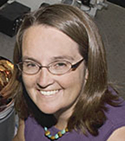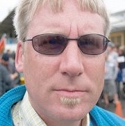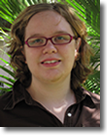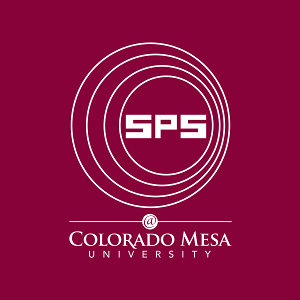



Join us during the weekend of September 30 to October 1 at Colorado Mesa University for the Fall 2011 SPS Zone 14 Meeting. Our program invites members from Colorado and Wyoming high schools, two- and four-year colleges, and universities to contribute a paper, present a poster, or just enjoy the invited talks, sessions, and workshops. During this meeting, both undergraduate and graduate students can present their research results via either oral or poster presentations. Students are also encouraged to present talks on any of their past summer activities which might include internships, laboratory experiences, meaningful workshops, travels abroad, or unique cultural activities. Please pre-register using the form to the left. If you will not be presenting enter no and skip the rest of the form.
For those who pre-register, a conference fee of $10 per person is due when the attendee arrives at the conference. A late conference fee of $15 per person will be charged to those who do not register by the pre-registration deadline. This registration fee will help to cover the cost of breakfast and lunch on the day of the conference, which will be provided to conference attendees. Pre-registration is required for all attendees who are either giving an oral or a poster presentation. The registration deadline is September 23 at 5 pm. For those who are planning on attending the conference but not presenting, we strongly encourage you to register by the above deadline. Early registration is greatly appreciated as it helps us in organizing the event.
Dr. Jack Hehn, Director of Education at the American Institute of Physics (AIP)
A Great Time to do Physics
 Where do you as a physics major fit into the “big picture,” the physics community. How many newly minted physicists will come from the United States this year? Where will they go to work? What will they do and how did their education prepare them to do their jobs? How many will go on to graduate school? Why are many individuals with physics degrees called “Hidden Physicists?” Information that may help to answer these questions comes from the American Institute of Physics (AIP) and the Society of Physics Students (SPS) and Sigma Pi Sigma, the honor society. Many of these resources will be discussed in an informal dialogue. There will be a challenge to look into your own future and think about the roles that you may play in your career.
Where do you as a physics major fit into the “big picture,” the physics community. How many newly minted physicists will come from the United States this year? Where will they go to work? What will they do and how did their education prepare them to do their jobs? How many will go on to graduate school? Why are many individuals with physics degrees called “Hidden Physicists?” Information that may help to answer these questions comes from the American Institute of Physics (AIP) and the Society of Physics Students (SPS) and Sigma Pi Sigma, the honor society. Many of these resources will be discussed in an informal dialogue. There will be a challenge to look into your own future and think about the roles that you may play in your career.
Dr. Brenda Dingus, APS and Los Alamos National Lab (LANL) Fellow
Observing The High Energy Universe
 Nature accelerates particles to millions of times higher energies than man-made accelerators. These astrophysical accelerators provide unique laboratories for studying extreme phenomena, such as the gravitational fields around black holes of mass billions of times greater than the sun and electromagnetic fields around neutron stars with spin periods of less than a second. High energy gamma-rays are excellent probes of these accelerators and I will discuss a new gamma-ray observatory that is being built in Mexico to observe the high energy universe.
Nature accelerates particles to millions of times higher energies than man-made accelerators. These astrophysical accelerators provide unique laboratories for studying extreme phenomena, such as the gravitational fields around black holes of mass billions of times greater than the sun and electromagnetic fields around neutron stars with spin periods of less than a second. High energy gamma-rays are excellent probes of these accelerators and I will discuss a new gamma-ray observatory that is being built in Mexico to observe the high energy universe.
Dr. Roland Schulze, Physical Chemist, (LANL)
Using Physics to Study Surfaces
 The study of physical and chemical processes occurring at surfaces, particularly in the case of gas-solid interfaces, is a very specialized field. I will discuss various methods of studying surfaces including the physical principles behind them. These include ultra high vacuum methods of spectroscopy involving excitation of the surface by photons and charged particles, real and reciprocal space probes of surface structure at the atomic level, and determination of the chemical properties of a surface. The basis behind the surface sensitivity for these methods will be discussed, and a variety of examples given for the use of these methods in studying surface physics, chemistry, and materials science.
The study of physical and chemical processes occurring at surfaces, particularly in the case of gas-solid interfaces, is a very specialized field. I will discuss various methods of studying surfaces including the physical principles behind them. These include ultra high vacuum methods of spectroscopy involving excitation of the surface by photons and charged particles, real and reciprocal space probes of surface structure at the atomic level, and determination of the chemical properties of a surface. The basis behind the surface sensitivity for these methods will be discussed, and a variety of examples given for the use of these methods in studying surface physics, chemistry, and materials science.
Dr. Derek Lamb, Research Scientist, Southwest Research Institute (SwRI)
Recent Advances in Predicting Solar and Space Weather Events
 The Sun is a major source of space weather, including accelerated charged particles and clouds of plasma and magnetic field that impact and alter the Earth's magnetosphere. These space weather transients may affect a whole host of orbital and Earth-based systems, so predicting their onset and arrival has many social and economic implications, in addition to being a challenging (some might say overwhelming) physics problem. During the summer of 2011 there were several news releases highlighting solar physicists' increasing predictive capability: the ability to predict sunspots a few days before they appear on the solar surface, the ability to more accurately predict the Earth-arrival times of coronal mass ejections, and a prediction for a delayed or non-existent onset of solar cycle 25, which should begin in the early 2020s. In this talk I will describe why it is important to predict space weather events, the science and methods behind these advances, and some potential directions for future work.
The Sun is a major source of space weather, including accelerated charged particles and clouds of plasma and magnetic field that impact and alter the Earth's magnetosphere. These space weather transients may affect a whole host of orbital and Earth-based systems, so predicting their onset and arrival has many social and economic implications, in addition to being a challenging (some might say overwhelming) physics problem. During the summer of 2011 there were several news releases highlighting solar physicists' increasing predictive capability: the ability to predict sunspots a few days before they appear on the solar surface, the ability to more accurately predict the Earth-arrival times of coronal mass ejections, and a prediction for a delayed or non-existent onset of solar cycle 25, which should begin in the early 2020s. In this talk I will describe why it is important to predict space weather events, the science and methods behind these advances, and some potential directions for future work.
Dr. Ellen Keister, Research Associate, JILA
How I Survived My Decision to go to Graduate School
 Having finally left grad school in January, Ellen is delighted to offer advice and suggestions about graduate school: getting in, getting through, and getting out! Now a post-doctoral research associate at JILA at the University of Colorado, she works on ultrafast laser spectroscopy, specifically UV and x-ray investigation of molecules. Please bring your questions about graduate school!
Having finally left grad school in January, Ellen is delighted to offer advice and suggestions about graduate school: getting in, getting through, and getting out! Now a post-doctoral research associate at JILA at the University of Colorado, she works on ultrafast laser spectroscopy, specifically UV and x-ray investigation of molecules. Please bring your questions about graduate school!
There is a wealth of hotels of differing qualities (and costs) in the Grand Junction area. For a complete list, click on the link on the right of this page titled “Lodging & Recreation”. Listed below are a few options close to campus:
• In a session called "Meet Your New Zone Representatives" Caitlin Heath and Chuck Stone will discuss the results of the National SPS Meeting the week prior, and then take questions and suggestions from everyone.
• We will be holding a physics demonstration competition.
• The local Western Colorado Astronomy Club (WCAC) will be holding a public outreach observing session on the evening of Saturday, October 1st at Colorado National Monument's Saddlehorn Picnic Area.
Feel free to share with us any other ideas you would like us to consider in the message portion of the pre-registration form and we look forward to our fall gathering.

Dr. Chad Middleton: SPS Faculty Advisor
Caitlin Heath: Associate Zone Counselor
September 30th - October 1st, 2011
Colorado Mesa University
1100 North Avenue
Grand Junction CO, 81501
Site Last Updated on Monday, December 29th 2025.